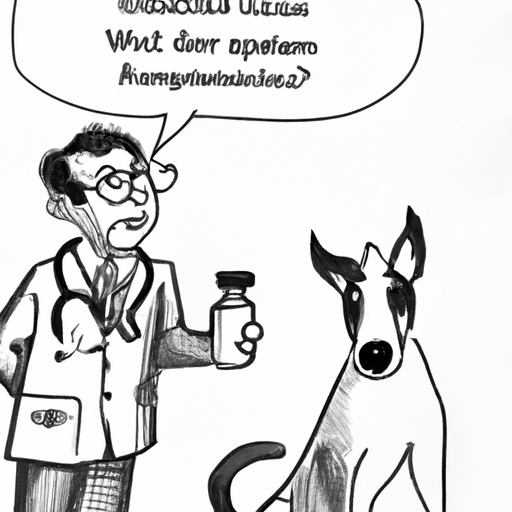As a loving and devoted dog owner, your pet’s health is your top priority. When your furry friend is in pain, it’s understandable that you’d want to do everything possible to bring them relief. Aspirin is a common go-to for pain relief in humans, but what about our four-legged companions? Can dogs take aspirin, and if so, what is the right dose? Let’s delve into this topic and gain some clarity.
Table of Contents
- Understanding Aspirin
- When to Consider Aspirin for Dogs
- Calculating the Right Dose
- Possible Side Effects
- Alternatives to Aspirin
- Frequently Asked Questions
Key Takeaways
- Aspirin can be administered to dogs, but with extreme caution.
- The dose of aspirin for dogs largely depends on the dog’s weight.
- It’s crucial to consult with a vet before giving your dog aspirin.
- Aspirin can cause serious side effects in dogs.
- Other safer alternatives to aspirin are available for dogs.
Understanding Aspirin
Aspirin, also known as acetylsalicylic acid, is a nonsteroidal anti-inflammatory drug (NSAID). It’s often used to relieve minor aches and pains, reduce fever, or prevent blood clots in humans. However, because dogs have a different metabolic process, they can’t tolerate the same drugs and dosages as humans.
As a caregiver, it’s essential to understand what you’re giving your pet. This article provides a detailed exploration of how aspirin works in a dog’s body.
When to Consider Aspirin for Dogs
Before you even think about giving your dog aspirin, you should consult with a veterinarian. Pain can be a symptom of many different conditions, some of which might require treatments other than pain relief. Only a veterinarian can accurately diagnose and prescribe the best treatment for your dog’s condition.
However, in certain situations, such as when your dog is suffering from arthritis pain, vet-approved aspirin dosage can provide temporary relief.
Calculating the Right Dose
As a rule of thumb, the dose of aspirin for dogs is usually calculated based on their weight. A typical dosage might be 10mg per pound of your dog’s weight, given once or twice a day. However, this is a general guideline, and the actual dosage may vary depending on your dog’s specific condition, overall health, and tolerance.
Here’s a rough guide:
| Weight of Dog | Aspirin Dosage |
|---|---|
| 10 lbs | 100mg |
| 20 lbs | 200mg |
| 30 lbs | 300mg |
| 40 lbs | 400mg |
| 50 lbs | 500mg |
Always consult with your vet before administering aspirin to your dog.
Possible Side Effects
While aspirin can provide temporary relief, it can also lead to serious side effects in dogs. These can include gastrointestinal problems, like ulcers and bleeding, kidney damage, and liver problems. If your dog shows any signs of these side effects, such as vomiting, diarrhea, loss of appetite, or behavioral changes, stop the medication immediately and contact your vet.
You can learn more about the potential side effects of aspirin in dogs in this article.
Alternatives to Aspirin
Given the potential risks associated with aspirin, you might want to explore safer alternatives. Nonsteroidal anti-inflammatory drugs (NSAIDs) specifically made for dogs, such as carprofen, deracoxib, or meloxicam, can be safer and more effective options. These medications are designed to manage pain and inflammation in dogs while minimizing side effects.
Visit this page for a comprehensive list of pain medications suitable for dogs.
Frequently Asked Questions
1. Can I give my dog baby aspirin?
Baby aspirin can be given to dogs at a dosage recommended by a vet. However, it must be given with caution due to potential side effects.
2. What other over-the-counter pain relievers can I give my dog?
Never give your dog any over-the-counter medication without consulting with a vet first. Many common OTC pain relievers, like ibuprofen and acetaminophen, can be toxic to dogs.
3. How often can I give my dog aspirin?
Depending on the dog’s condition, aspirin is typically given once or twice a day. Always follow your vet’s instructions on dosage and frequency.
In conclusion, while aspirin can be used to provide temporary relief for dogs in pain, it must be used with caution. Always consult with a vet to ensure you’re giving the right dose, and monitor your dog for any potential side effects. Remember, your dog’s health and well-being are in your hands. It’s always better to be safe than sorry when it comes to their care.



